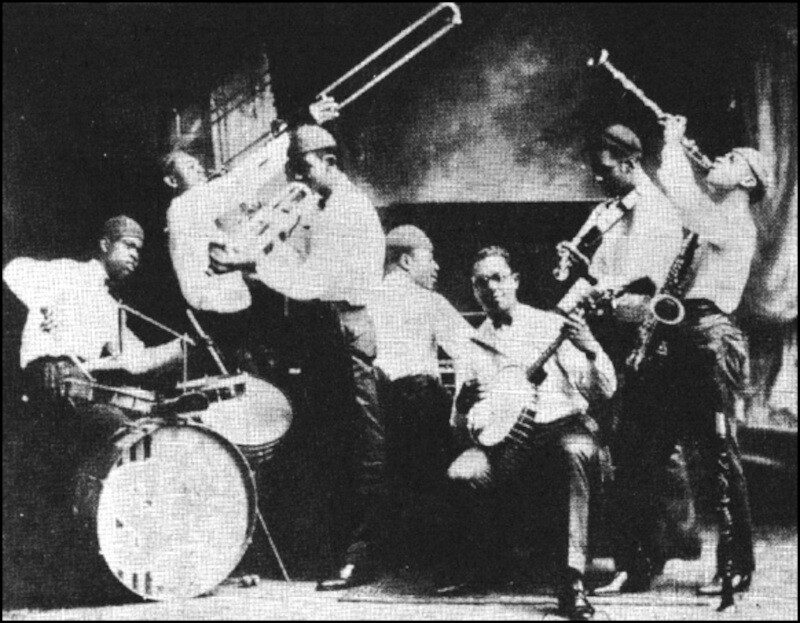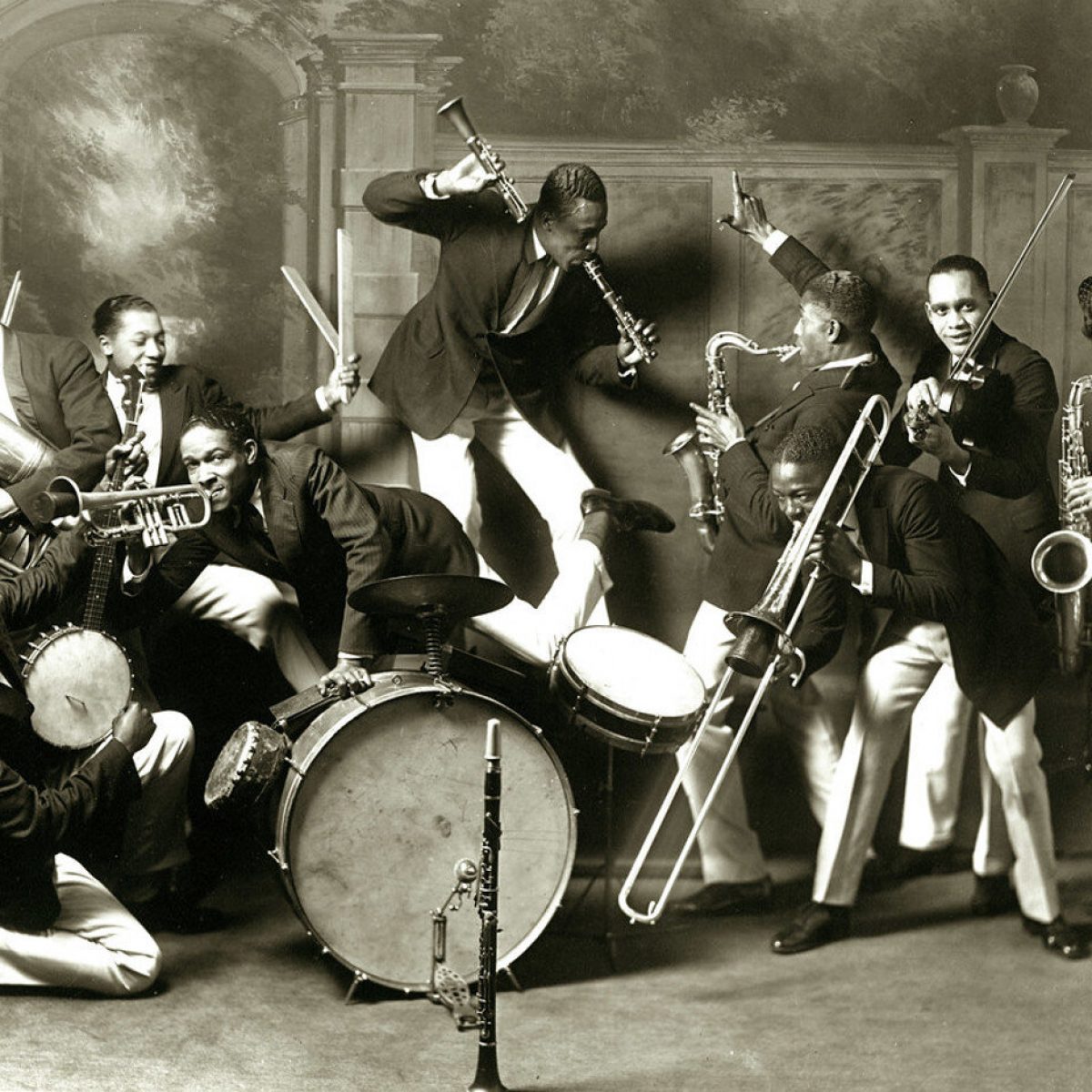In the early 1920s, Scott’s Symphonic Syncopators, as their bass drum called them, included Gus McClung, trumpet; Earl Horne, trombone; Cecil Scott, reeds; Buddy Burton, violin; Don Frye, piano; Dave Wilborn, banjo and Lloyd Scott, drums. They played as far away as Pittsburg. In the mid Twenties they had a three months’ summer gig at Hermit’s End or Herman’s Inn, 2493 Seventh Avenue, in Harlem. Their band was still a little small and young for the big city and they returned to Ohio. They added two excellent men: Dicky Wells, trombone from Louisville, Kentucky and Frankie Newton, trumpet from Huntington, West Virginia.

As a ten piece group called Lloyd Scott’s Symphonic Syncopators, they returned to Harlem and were quite successful, based for almost two years at the Capitol Palace, 575 Lenox Avenue. This was an after-hours club that stayed open well into the morning hours. Since their own job started so late, the Scott outfit often served as relief band for bigger units such as Duke Ellington, Fletcher Henderson etc.
They first recorded in 1927 under the name of Lloyd Scott and his Orchestra featuring arrangements by pianist Don Frye and trumpeter Kenneth Roane with solos by Dickie Wells in his first recording. Along with Roane, Hubert Mann played banjo and Cecil Scott was on baritone sax and clarinet. Lloyd Scott stopped playing to concentrate on managing the band now billed as Cecil Scott’s Bright Boys.
The band prospered, playing at the Savoy and Roseland ballrooms and touring to St. Louis and elsewhere. They featured showmanship, smooth danceable tunes and really advanced hot arrangements. The band featured two contrasting trumpeters in Bill Coleman and Frankie Newton and the excellent trombone of Wells, way before his Count Basie days. Scott on clarinet, tenor and baritone sax and Frye also took lots of solo space. This group recorded in 1929.
Although the Depression caught up with them and they never recorded again, Swing Era musicians such as Roy Eldridge, Johnny Hodges and trumpeter Joe Thomas all reportedly passed through the band. After disbanding his group in the early 1930s, Cecil Scott continued as a sideman in swing bands. He was active in the late 40s small band jazz revival in New York as well and is featured in photographs on the Library of Congress American Memory website. Cecil Scott died in January of 1964.—by Thomas Hennessey
| Cecil Scott’s Bright Boys | Lloyd Scott and his Orchestra |
Redhotjazz.com was a pioneering website during the "Information wants to be Free" era of the 1990s. In that spirit we are recovering the lost data from the now defunct site and sharing it with you.
Most of the music in the archive is in the form of MP3s hosted on Archive.org or the French servers of Jazz-on-line.com where this music is all in the public domain.
Files unavailable from those sources we host ourselves. They were made from original 78 RPM records in the hands of private collectors in the 1990s who contributed to the original redhotjazz.com. They were hosted as .ra files originally and we have converted them into the more modern MP3 format. They are of inferior quality to what is available commercially and are intended for reference purposes only. In some cases a Real Audio (.ra) file from Archive.org will download. Don't be scared! Those files will play in many music programs, but not Windows Media Player.





















